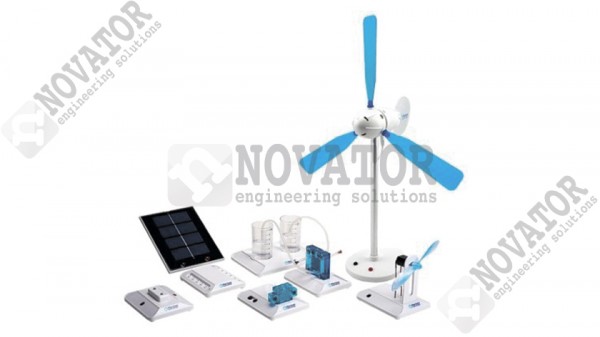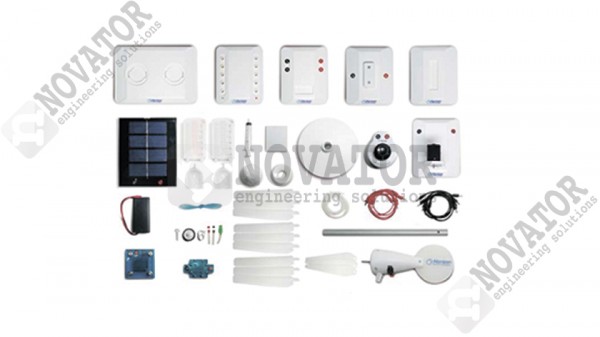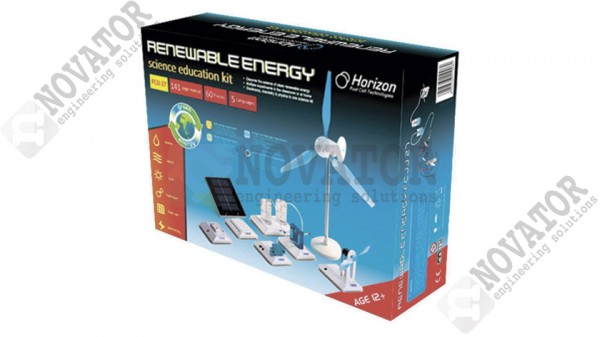Renewable Energy Science Kit (FCJJ-37)
|
|
|
PLANB_FULLICONS-ONE
PLANB_FULLICONS-TWO
PLANB_FULLICONS-THREE
PLANB_FULLICONS-FOUR
PLANB_FULLICONS-FIVE
? Ask a question
Description
The Renewable Energy Science Kit demonstrates the workings of a clean energy technology system on a miniature scale. Power an electrical circuit by solar panel or a wind turbine with profiled blades based on NASA aeronautics. Generate hydrogen through water electrolysis and convert it into electricity using a PEM fuel cell. Whichever combination of technologies you want to explore, this science kit is a comprehensive introduction to the principles behind renewable microgrids.
- Small-scale wind turbine, solar cell, fuel cell, electrolyzer and more.
- Enough hardware, software and curriculum content for groupwork – up to 4 or 5 students.
Curriculum
- The Effect of Heat on Solar Panels
- The Effect of Shade on Solar Panels
- The Effect of Tilt Angle on Solar Panels
- Finding the Solar Panel’s Maximum Power Point
- Electrolysis Mode Generating H2 and O2
- Fuel Cell Mode Generating Electricity from H2 and O2
- Determining the Minimum Water Decomposition Voltage
- Polarization States for Hydrogen Fuel Cells
- How Many Blades Are Best – 1, 2, 3 … More?
- Using Three Different Curved Blade Shapes
- Using Blades You Make Yourself
- Turbine Efficiencies
- Measuring RPM
- Tuning For Maximum Power
- How Blade Angle or Pitch Affects Output Power
- To Generate Hydrogen
Includes Full STEM Activity Materials for:
- Reversible electrolysis reactions
- Reaction rates
- Increasing energy efficiency and car performance
- Renewable energy
- Conservation of energy and energy transfer
- Measuring the effects of solar cell angle on electrical output
- Measuring the effects of shading on electrical output
- Changing number of blades
- Changing angle of blades
- Using different-shaped blades
- Rotational dynamics
All Horizon STEM materials are aligned to the Next Generation Science Standards and Energy Literacy Framework. Subject areas include Physics, Chemistry, and Earth Sciences for middle and high school grades.







